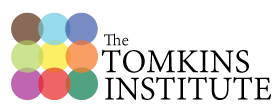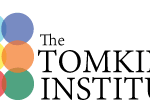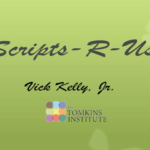Study Group History
In October 1993, during the first annual meeting of the Tomkins Institute, there arose a demand for more intensive study of affect and script-based psychology. The Continuing Education Committee (CEC) responded by developing educational objectives and a syllabus for the Basic Study Group. The idea behind the Basic Study Group is a direct result of the difficulty encountered by anyone beginning to study and learn the complex and interlocking works of Tomkins. Years ago, a number of us were compelled to form a reading/discussion group of interested colleagues as we struggled with his four-volume treatise, Affect Imagery Consciousness (AIC). The group process allowed us to push on with growing excitement as the psychology of affect and script came alive for us and began to infiltrate our thinking about human motivation and clinical casework. (Many of the early members were mental health professionals.) Subsequently, we discovered that there were small pockets of others studying Tomkins all over the country. They, too, had settled on group study as the best way to approach AIC.
While many of the early members of the Tomkins Institute were psychotherapists and physicians, the membership has broadened to include people from many walks of life. Since affect is the source of all human motivation, Tomkins’ work has application in every human endeavor! Members are applying it in business, personal relationships, the arts, literature, spirituality, peacemaking and restorative practices, child development, medicine, education . . . the list goes on and on.
Beginning a Study Group
The formation of a new Basic Study Group begins as follows: Members of the CEC gather information from all those who express an interest in further study of Tomkins. We then establish a geographical area of interested people and locate a person in that area to be the Group Coordinator. The Group Coordinator must have had previous exposure to affect and script-based psychology through one or more educational venues with which the CEC is familiar. For those interested in being a Group Coordinator without prior exposure to affect and script-based psychology, the Training Director will make special arrangements. The CEC then provides the Group Coordinator with the names of interested colleagues living in that geographical area so that the Coordinator may verify their level of interest on an individual basis. Once a mutually convenient time and location have been established, the group begins meeting for about two hours on a monthly basis for approximately one year, following a twelve-section, comprehensive curriculum that includes various readings and discussion questions covering the basic tenets of affect and script-based psychology.
Basic Study Group
The Educational Objectives of the Basic Study Group are as follows: ” . . . to allow a group guided entry into the basic principles of affect theory. The reading selections take one through the development of Tomkins’ thinking from the earliest descriptions of innate affect to our present involvement in script theory as it applies to human development, psychotherapy, and change. The intent of the readings is to ground the group so firmly in the concept of innate affect that investigations of patients in therapy or research protocols [or any other application] always refer back to these givens. In order to do this it is necessary to study in depth the idea of firmware mechanisms—drives and affects—that have specific functions. Therefore the group must learn the innate affects and the drives, and come to understand the nineteen rules of affect dynamics.” In particular, students become familiar with the major concepts in Tomkins’ affect and script-based psychology. They understand how these concepts clarify motivation and personality and apply this paradigm to many situations, such as relationships, the workplace, parenting, psychotherapy, and other arenas.
Advanced Study Group
The Educational Objectives of the Advanced Study Group are as follows: “It is a prerequisite for this group that all members have completed the Basic Study Group protocol and are familiar with the nature of innate affect. In order for any stimulus to enter into consciousness, it must trigger one of these nine amplifier mechanisms, after which we respond to this particular combination of stimulus and triggered affect. From the earliest days of extrauterine life, the organism experiences stimulus-affect-response triads that it tends to assemble into groups, clusters, or families of scenes. Although the number of possible triggers is essentially infinite, the fact that a stimulus can only produce one of nine amplifying affects makes the task of assembly much easier. At some point in the history of our emotional lives, the grouped scenes themselves become an entity capable of triggering new affect—and this new affect now causes a new effect on the cluster of scenes. It is to this specific situation of affective magnification that Tomkins gave the special name of script—a family of scenes that itself triggers affect and to which we therefore respond in a predictable manner.” “Tomkins devoted the last 25 years of his life to the study of these scripts, categorizing them in many ways. The purpose of this syllabus is to allow a group guided entry into the basic principles of script theory. The reading selections take one through the development of Tomkins’ thinking, from the earliest descriptions of scripts to our present involvement in script theory . . . The expected outcome of the readings and discussions is to ground the group firmly in the language and concepts of scripts.” On completion, group members will have developed facility with this paradigm and found more effective ways to relate to people in many settings, and to treat patients and develop research protocols. In particular, the Advanced Study Group will familiarize students with the full range of scripts and their varying impact on motivation. Students will become familiar with Tomkins’ theories for cognition, memory, the central assembly, and consciousness. They will be able to understand the coherence of Tomkins’ psychology as a system, and to grasp the interaction of its components in relation to the system. They will develop sufficient fluency in this system to apply it in their lives and work, enhancing their skills and judgment in relationships.
Clinical Study Group
The Educational Objectives of the Clinical Study Group are as follows: “A new level of Study Group has recently been made available for clinicians who have completed both the Basic and the Advanced Study Group protocols. Whereas both the Basic and the Advanced Study Group are based on protocols established by the CEC and the Study Group Committee, and registered formally with each of the accrediting organizations, the Clinical Study Group process is designed on an individual basis. The Continuing Education Committee and the Group Coordinator work together to choose one particular script that will be the subject of study for several months. Through this process, the members of the Study Group will learn to identify that script in both clinical and non-clinical situations, and to develop therapeutic approaches based on their growing understanding of that script. It is expected that the Study Group will address four scripts in this manner during a calendar year.”
If you are interested in joining one of our Study Groups, please contact: info@tomkins.org.


